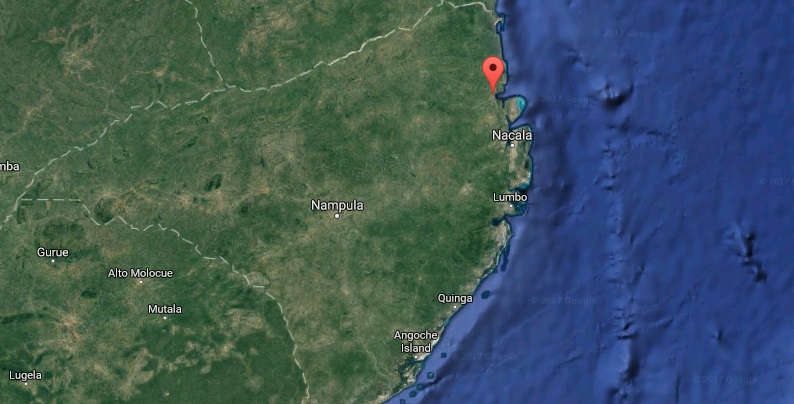Mozambique: Security situation in north 'continues to deteriorate' - UNHCR
Memba cholera outbreak “under control”

The Mozambican Ministry of Health announced on Tuesday that an outbreak of cholera in Memba district, on the coast of the northern province of Nampula, is now under control.
Speaking at a Maputo press conference on Tuesday, Lorna Gujral, the head of the epidemiology department in the Health Ministry, said that between August and the first week of October, 109 cases of cholera had been diagnosed in Memba, one of whom had died (a lethality rate of 0.9 per cent).
But Gujral considered the situation as under control. She said Nampula province has sufficient stocks of serum and other material for treatment, as well as water purifying chemicals to distribute among the communities to ensure that they are drinking clean water.
“This situation is a warning, not only for Nampula, but for other parts of the country”, said Gujral. “Cholera is a disease in which some of the carriers have no symptoms, and when people don’t display symptoms, they don’t seek medical help”.
Looking back over the entire year since early January, Gujral said there had been cholera outbreaks in Nampula, Tete and Maputo city and province. In total, there had been 2,131 cases and five deaths.
As for other diarrhoeal diseases, from the start of the year until 9 October, 492,152 cases had been notified, with 198 deaths. This is a decline on the figures for all of 2016, when there had been 591,693 cases and 306 deaths.
As for malaria, between 1 January and 9 October there were 5,023,829 notified cases, and 984 deaths. The statistics for all of 2016 are 5,861,416 notified malaria cases and 1,230 deaths. Gujral reported that about 13 million mosquito nets have been distributed in northern and central Mozambique this year under a mass bed net distribution campaign. This campaign has not yet been extended to the southern provinces.
Gujral said the Health Ministry is preparing for the 2017-218 rainy season, which begins this month and lasts until the end of March. This is the season when cases of malaria and diarrhoeal diseases usually increase, as well as other problems such as high blood pressure and food poisoning.
The Ministry is thus urging the public to adopt healthy habits, such as drinking plenty of water, to avoid dehydration, avoiding excessive exposure to the sun, eating a balanced diet rich in fruit and vegetables, and taking regular exercise.
To reduce the risk of diarrhoeal diseases, the Ministry urges regular hand washing, particularly before eating or preparing food, and the use of latrines rather than defecating in the open. The advice also suggests treating water before drinking it, and washing fruit and vegetables with treated water.
As for malaria prevention, the Ministry urges the public to eliminate all pools of stagnant water where mosquitoes might breed, and where possible to use mosquito netting on windows and doors.












Leave a Reply
Be the First to Comment!
You must be logged in to post a comment.
You must be logged in to post a comment.